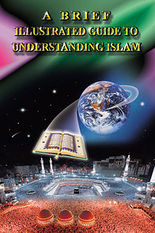Template:Pictorial-Islam-options: Difference between revisions
| [checked revision] | [checked revision] |
mNo edit summary |
mNo edit summary |
||
| Line 1: | Line 1: | ||
<noinclude>Also see: [[Template:Pictorial-Islam]]</noinclude><!-- HELP NOTES: Each option tag handles one random story --><choose> | <noinclude>Also see: [[Template:Pictorial-Islam]]</noinclude><!-- HELP NOTES: Each option tag handles one random story --><choose> | ||
<option weight="1">{{Pictorial-Islam|1=Essay: Rejecting the "Aisha Was Older" Apologetic Myth|2=[[File:Muslim, Christian and Jew.jpg|160px|link=Rejecting Dr David Lieperts Aisha Was Older Apologetic Myth]]|3=Some well-intentioned people are claiming that "Most scholars for the last 1200 years suggest Aisha was 11-14 at the time of the consummation of her marriage to Muhammad", and one person even provided a link to an apologetic piece by Dr. David Liepert at the Huffington Post titled, "Rejecting the Myth of Sanctioned Child Marriage in Islam". | |||
Apparently the arguments raised by Liepert and others have given many the false impression that Aisha's age is a long contested issue in Islam, and that it is a valid argument over interpretation that could eventually lead to reforms within mainstream Islam. The problem I have with this, is that it is certainly not an argument over interpretation. | |||
The text clearly say one thing and one thing only. For anyone with a little knowledge on the subject and who has actually read the source material, it is disingenuous to claim otherwise. For people like Liepert, simply lying about what sources say may be effective in apologetic pieces, but they are useless if the intentions behind them are to reform the religion. ([[Rejecting Dr David Lieperts Aisha Was Older Apologetic Myth|''read more'']])}}</option> | |||
Revision as of 22:46, 18 February 2014
Also see: Template:Pictorial-Islam
|
